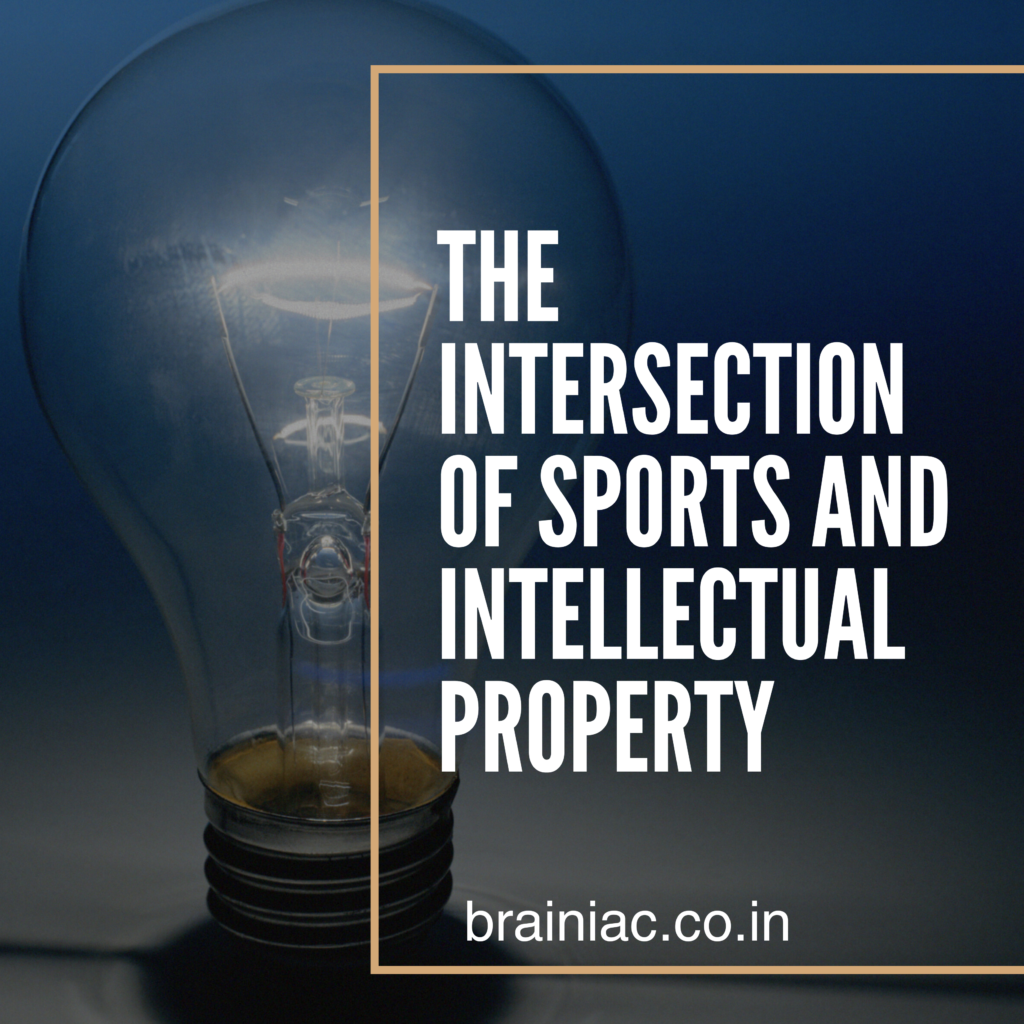Introduction
In the fast-paced world of sports, where speed and competition are king, intellectual property (IP) is a player that is often forgotten. Intellectual property, which includes things like patents, trademarks, and copyrights, is very important to the sports industry’s identity, ability to make money, and new ideas. This article talks about the interesting relationship between intellectual property and sports, showing how these two seemingly unrelated areas can work well together.
Trademarks
One of the most visible aspects of intellectual property in sports is the use of trademarks. From iconic team logos to athlete endorsements, trademarks serve as the visual and symbolic representation of a sports entity. Teams, leagues, and individual athletes invest heavily in creating and protecting their trademarks to establish a strong brand identity.
Take, for example, the National Football League (NFL) and its team logos. The distinctive logos of teams like the Dallas Cowboys, New England Patriots, and Green Bay Packers are not merely symbols; they are valuable trademarks representing a vast and lucrative sports enterprise. These trademarks not only foster a sense of loyalty among fans but also open up revenue streams through merchandise sales, licensing agreements, and sponsorship deals.
Athletes, too, understand the significance of personal branding. Trademarks associated with athlete names and logos have become commonplace, allowing athletes to capitalize on their image and reputation. Michael Jordan’s iconic “Jumpman” logo, for instance, has transcended basketball and become a global symbol of excellence and athleticism.
In the digital age, the protection of trademarks extends to online spaces. Social media handles, hashtags, and domain names all fall under the purview of trademark law, ensuring that sports entities maintain control over their online presence and prevent unauthorized use of their brand.
Copyrights
While trademarks safeguard the visual elements of sports, copyrights come into play to protect the creative expression inherent in sports events. Copyright law covers a wide range of works, including broadcasts, photographs, and written content associated with sports.
Broadcasting rights, in particular, are a critical aspect of sports copyright. Leagues and broadcasters invest significant resources in producing and broadcasting sports events, and copyright protection ensures that they have exclusive control over the distribution of those broadcasts. This exclusivity is what makes television networks pay substantial sums for the rights to air major sporting events like the Super Bowl or the FIFA World Cup.
Photographs and written content also fall under the umbrella of sports copyrights. Sports photographers capture iconic moments, and sports writers craft narratives that enhance the storytelling aspect of the games. Copyright protection grants creators the exclusive right to reproduce, distribute, and display their works, allowing them to monetize their creative efforts through licensing agreements and syndication.
However, the relationship between copyrights and sports isn’t always straightforward. The emergence of social media and user-generated content has led to debates over fair use and the sharing of sports-related content online. Leagues and athletes must strike a balance between protecting their intellectual property and engaging with fans through the sharing of highlights and behind-the-scenes content.
Patents
Innovation in sports goes beyond the field and into the realm of technology and equipment. Patents play a crucial role in protecting the inventions and innovations that enhance the performance, safety, and entertainment value of sports.
Sports equipment manufacturers, for instance, invest in research and development to create cutting-edge products. From high-performance athletic shoes to advanced sporting gear, patents provide a competitive advantage by granting exclusive rights to the innovative features and technologies embedded in these products.
In the realm of sports science, patents protect novel training methods, fitness equipment, and sports-related medical advancements. These innovations contribute not only to athletes’ performance but also to the overall evolution of sports as a discipline.
Challenges and Controversies
Intellectual property (IP) has become an important part of sports, but it also comes with some problems and debates. The balance between protecting intellectual property rights and getting fans involved is something that comes up a lot.
Strict enforcement of IP rights, especially in the digital age, can sometimes clash with the desire to create a vibrant online community of fans. The sharing of highlights, memes, and fan-created content on social media platforms can be a double-edged sword, as leagues and athletes must navigate the fine line between protecting their rights and allowing fans to express their passion for the game.
Additionally, the commodification of sports and the aggressive pursuit of IP rights can lead to legal battles, as witnessed in disputes over team names, logos, and even player celebrations. Striking the right balance between protection and permissiveness is crucial for maintaining a positive relationship between sports entities and their fan base.
Conclusion
In the dynamic world of sports, intellectual property has emerged as a powerhouse, shaping the identity, innovation, and commercial success of the industry. Trademarks, copyrights, and patents play distinct yet interconnected roles, creating a complex tapestry that defines the sports landscape.
There will be changes in the link between sports and intellectual property as sports change. The fine line between protecting rights and encouraging fan participation will need to be constantly adjusted and carefully thought out. In the end, the way sports and intellectual property work together is like a complicated dance between tradition and innovation, competition and friendship. This makes for a game-changing relationship that goes far beyond the playing field.


